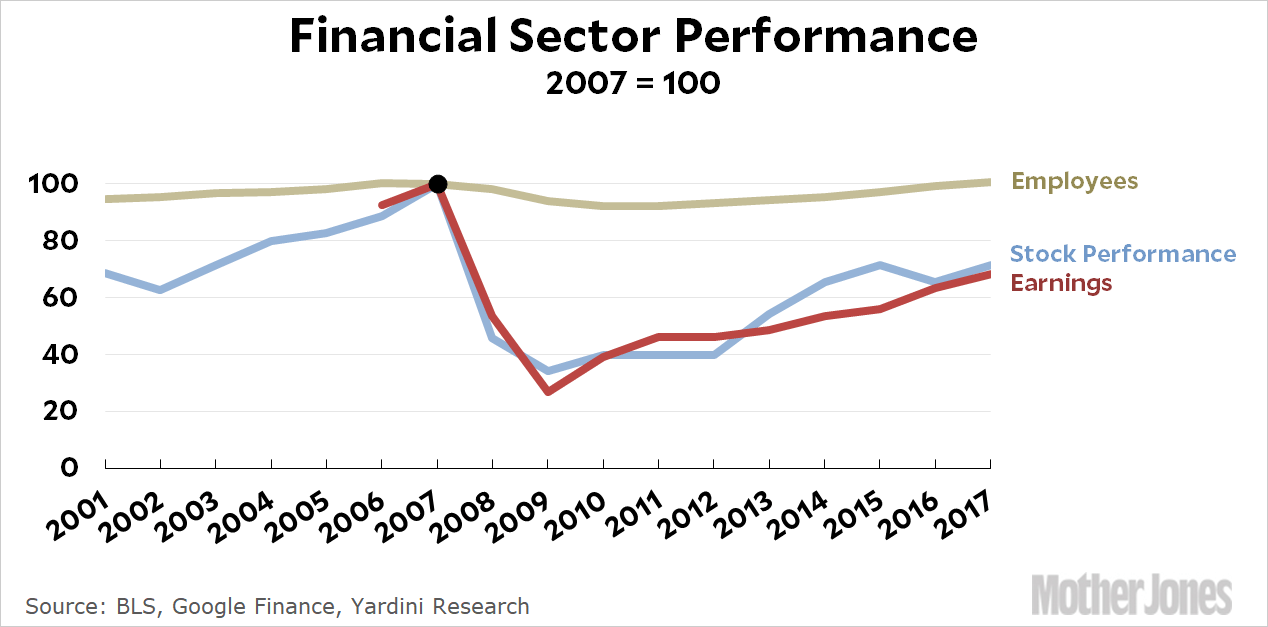Last week House Republicans voted unanimously—with one oddball exception—to repeal big swaths of the Dodd-Frank financial reform act. This was, perhaps, not surprising since only six Republicans voted for Dodd-Frank in the first place. Today, the Trump administration weighed in:
Treasury Secretary Steven T. Mnuchin on Monday proposed sweeping changes to the tough Dodd-Frank regulations put in place after the 2008 financial crisis, including a major reduction in the power of the Consumer Financial Protection Bureau…reducing oversight of large financial institutions, providing even more regulatory relief for smaller banks and loosening new mortgage restrictions designed to prevent a repeat of the subprime meltdown.
….“A sensible rebalancing of regulatory principles is warranted in light of the significant improvement in the strength of the financial system and the economy, as well as the benefit of perspective since the Great Recession,” the report said….The report, which included dozens of recommendations, is the first of three ordered by Trump as he looks to fulfill a campaign promise to dismantle the Dodd-Frank Wall Street Reform and Consumer Protection Act.
Put all this together, and it’s pretty obvious that Dodd-Frank is essentially gone if it all passes. It’s even possible that Wall Street would, on net, end up less regulated than it was before the Great Crash.
I don’t expect a serious answer to this, but I have to ask: Do Republicans think any response was warranted to the 2008 financial meltdown? They sure don’t act like it. I mean, Dodd-Frank was hardly a crushing blow to Wall Street. On a variety of measures, financial sector performance is cranking along this year at the very-healthy-but-non-bubble values of 2003:1

And yet, a mere decade after the Great Crash, Republicans want to repeal pretty much everything we did to prevent 2003 performance from turning into 2007 performance and then 2009 performance. Why? After all, in the long run the Great Crash probably hurt Donald Trump’s working-class supporters more than anyone else.
There’s no need to answer this. Unless, of course, you’re a conservative with something serious to say.
1Sources: Employment via Bureau of Labor Statistics; stock performance via Financial Select Sector SPDR Fund via Google Finance; earnings via Yardini Research.













